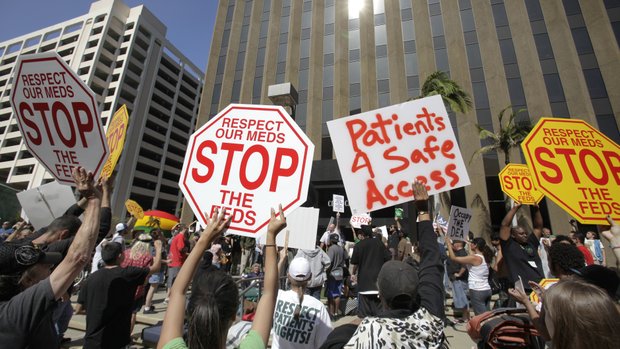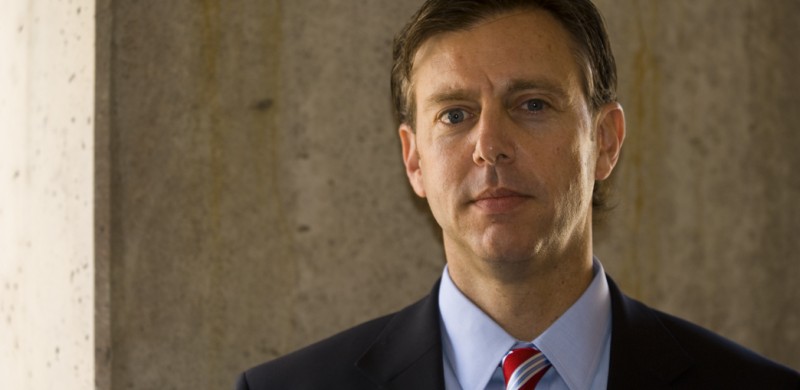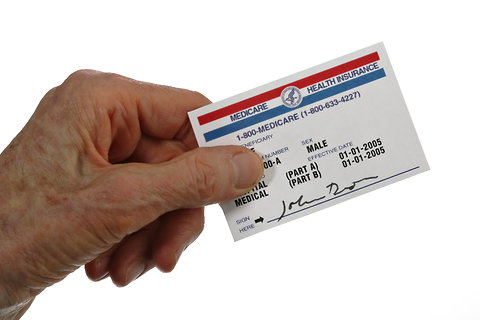
Nov 20, 2014 | Michigan Medical Marijuana Act
There’s obviously a major disconnect between Michigan prosecutors and judges when it comes to medical marijuana.
By Michael Komorn
The Oakland Press reports that prosecutors have some credible evidence against two Lenox Township men accused of running an illegal marijuana grow operation.
But what has everyone turning their heads, is Judge David Viviano’s ruling in the case that a medical marijuana caregiver card is only an “affirmative defense” against criminal charges. Or in other words, it’s a jury’s decision if a defendant’s state-sanctioned right to grow or possess medical marijuana outweighs the charges against hm.
(Related: Growing Issue: Medical Defense Denied During Trial)
Labeling the ruling absurd is an understatement. Consider it this way: If you are arrested for trespassing, when in-fact you own the property, your right to be on the property isn’t something for the jury to consider at trial.
There’s obviously a major disconnect between Michigan prosecutors and judges when it comes to medical marijuana.
(Related: Silicon Valley Is High On Innovation. And Pot)
Oct. 26, Oakland Press: Assistant Macomb prosecutor William Dailey was pleased with the ruling, saying it will help guide medical marijuana users in what they can do and police in their actions in enforcing marijuana laws in light of the state Medical Marihuana Act.
“The more courts interpret the statute and make concrete rulings, it becomes easier for people to know when they’re running afoul of the MMA,” he said. “And it provides more guidance for law enforcement.”
Clarification you ask? No kidding. Because it sounds to me like someone who is fully adhering to the medical marijuana law could find him or herself before a judge. It’s a painfully frightening and potentially expensive proposition for a citizen that’s jumping through the necessary hoops to live within the law’s boundaries, without any certainty of protection from the very same law!
(Related: Jury Selection In Marihuana Cases)
Yes, the legal process can be complicated, but that’s why we have a system in place (courts and lawyers and judges) to navigate through it. But if you’re telling me that despite a law’s overwhelming approval at the ballot box, a person has no reassurance they’re in compliance unless or until a significant body of case law is established, then the notion of “the law” is void of meaning.
If you or someone you know is facing charges as a result of Medical Marijuana prescribed to you as a Medical Marijuana patient under the Michigan Medical Marijuana Act, contact Komorn Law and ensure your rights are protected.
Read more: http://www.mlive.com/news/detroit/index.ssf/2011/10/macomb_judges_ruling_makes_med.html
Michael Komorn is recognized as a leading expert on the Michigan Medical Marihuana Act. He is the President of theMichigan Medical Marijuana Association (MMMA), a nonprofit patient advocacy group with over 26,000 members, which advocates for medical marijuana patients, and caregiver rights. Michael is also the host of Planet Green Trees Radio, a marijuana reform based show, which is broadcast every Thursday night 8-10 pm EST. Follow Komorn on Twitter.

Nov 20, 2014 | Cannabis Defense Day, Michigan Medical Marijuana Act
Fly-over action sends message to U.S. Attorney General Holder and launches advocates’ Peace for Patients.
By Michael Komorn
While U.S. Attorney General Eric Holder spoke at a UC Berkeley law school commencement ceremony, a plane flew overhead with a banner that read “Holder: End Rx Cannabis War. #Peace4Patients,” protesting the recent actions of the Justice Department in the Bay Area.
(Related: Cannabis Defense Day)
Medical marijuana advocates were handing out fake DOJ recruitment flyers outsides of the Harvest Greek Theatre, where Holder delivered his speech. The flyers detailed how the Obama Administration is using harmful tactics that are adversely affecting the lives of hundreds of thousands of patients in California.
“Patients will not stand idly by while Attorney General Holder’s Justice Department continues to attack our community and endanger the lives of Berkeley residents” said Caren Woodson, one of theadvocates outside the ceremony. “We’re here today to call attention to the misguided policies of the Obama Administration and to ensure that his ongoing campaign against medical marijuana is stopped in its tracks.” The protest today was organized by Americans for Safe Access and California NORML.
(Related: Macomb judge’s ruling makes medical marijuana one big legal gray area)
Just a few days prior to Holder’s speech, his Justice Department served an asset forfeiture lawsuit on the landlord of Berkeley Patients Group, on the city’s oldest and most-respected medical marijuana dispensaries. Filed on May 2nd, the lawsuit was strongly denounced at a press conference Wednesday by Berkeley Mayor Tom Bates and four city Councilmembers.
“I think it’s time for the federal government, the president and the attorney general to wake up and stop these kinds of actions,” Mayor Bates said at the press conference. “Here is a group of people who have played by the rules and have had no problems in the city with the way they or their patients conduct themselves.”
(Related: Medical Marijuana Supporters Campaign for Limited Legalization In Michigan)
Saturday’s efforts were also aimed at launching the Peace for Patients campaign, which calls on Congress to “end the war on patients.” The Peace for Patients campaign (#Peace4Patients and http://PeaceForPatients.org) has begun as a petition drive to help put pressure on Congress, but will expand to include a broader effort this summer using social media and grassroots meetings with legislators in order to help change federal policy.
If you or someone you know is facing charges as a result of Medical Marijuana prescribed to you as a Medical Marijuana patient under the Michigan Medical Marijuana Act, contact Komorn Law and ensure your rights are protected.
Michael Komorn is recognized as a leading expert on the Michigan Medical Marihuana Act. He is the President of theMichigan Medical Marijuana Association (MMMA), a nonprofit patient advocacy group with over 26,000 members, which advocates for medical marijuana patients, and caregiver rights. Michael is also the host of Planet Green Trees Radio, a marijuana reform based show, which is broadcast every Thursday night 8-10 pm EST. Follow Komorn on Twitter.
Read more: http://www.enewspf.com/opinion/commentary/43064-medical-marijuana-advocates-protest-u-s-attorney-general-holder-s-speech-in-berkeley.html

Nov 20, 2014 | Medical Marihuana Review Panel, Michigan Medical Marijuana Act
“After a careful review of the Medical Marihuana Act… the make-up of the current Medical Marihuana Review Panel does not meet the administrative rule requirements…”
By Michael Komorn
After spending close to four years to convene the Medical Marihuana Review Panel, it has been dissolved by the Agency who created it. Why you ask? They failed to follow Michigan Law when creating the panel…
“After a careful review of the Medical Marihuana Act… the make-up of the current Medical Marihuana Review Panel does not meet the administrative rule requirements… As a result, the Department of Licensing and Regulatory Affairs will be appointing a new panel that complies with the law. No further meeting of the review panel will be held until the new panel is appointed,” said the government in a private communication sent to a select few individuals.
(Related: Medical Marijuana Advocates Protest In Berkeley and Launch Peace for Patients Campaign)
The Panel’s deconstruction was revealed in a letter sent to Panel participants on April 29, 2013 as was recently obtained by The Compassion Chronicles.
Medical marijuana patients who participated in the sessions of the Panel were not notified and may still be under the false pretenses that the LARA’s promises were stil going to be honored.
(Related: Cannabis Defense Day)
The issue with the Panel is the composition of the membership. Per the LARA letter:
“R 333.131 requires the review panel to include not more than 15 members and must include the Michigan chief medical executive and seven members of the Advisory Committee on Pain and Symptom Management. These seven members must include four licensed physicians and three non-physicians… As a result, the Department of Licensing and Regulatory Affairs will be appointing a new panel that complies with the law.”
Not only are the physicians and other participants in the previous Panel asked to reapply for membership in the new Panel, but LARA also has a new director, Steve Arwood. Former head of the Medical Marihuana Program, Celeste Clarkston, retired less than three weeks ago – around the same time Panel members were notified.
The inability to assemble a correct Panel is a colossal embarrassment to the State Government.
“Why has it taken LARA so long to put the panel together? Celeste Clarkson, who heads up the state’s medical marijuana program, told The Huffington Post the agency had to finalize the language for petition forms and do the legwork necessary to assemble a fair and balanced panel. She also noted that for a time, the state lacked a chief medical officer.”
The Department of Licensing and Regulatory Affairs is responsible for administering the Michigan Medical Marihuana Act. Contained within the language of the 2008 Act is a requirement that new conditions be reviewed and added to the list of illnesses that could qualify a Michigan citizen for the medical use of marijuana. The Michigan Medical Marijuana Act requires that the panel meet no more than six months after a petition to add a new ailment has been received by the department responsible for running the program.
(Related: Medical marijuana groups urge Michigan lawmakers to protect patient rights)
The Medical Marihuana Act was previously was administered by the Department of Community Health but Gov. Snyder shifted those responsibilities to the Department of Licensing and Regulatory Affairs shortly after taking office. Activists have submit petitions to have conditions like Post-Traumatic Stress Disorder added to the list of qualifying conditions since 2009, when the administrative rules were made public.
Since the Panel met in 2012 they have determined that both PTSD and Parkinson’s Disease should be added to the list of qualifying conditions. They had already announced the next two illnesses to be considered: autism and asthma..
View the complete letter:
LARA eliminates new conditions panel
If you or someone you know is facing charges as a result of Medical Marijuana prescribed to you as a Medical Marijuana patient under the Michigan Medical Marijuana Act, contact Komorn Law and ensure your rights are protected.
Michael Komorn is recognized as a leading expert on the Michigan Medical Marihuana Act. He is the President of theMichigan Medical Marijuana Association (MMMA), a nonprofit patient advocacy group with over 26,000 members, which advocates for medical marijuana patients, and caregiver rights. Michael is also the host of Planet Green Trees Radio, a marijuana reform based show, which is broadcast every Thursday night 8-10 pm EST. Follow Komorn on Twitter.
Read more: http://www.thecompassionchronicles.com/2013/05/13/michigan-admits-major-error-dissolves-new-marijuana-conditions-panel/
Nov 20, 2014 | Medical Marijuana Attorney Michael Komorn, Michigan Medical Marijuana Act
https://www.youtube.com/watch?v=ZaoMK20s0PQ
Komorn on WJR 760-AM with Mitch Albom for Michigan Medical Marijuana Debate
Subscribe to Komorn Law on YouTube
If you or someone you know is facing charges as a result of Medical Marijuana prescribed to you as a Medical Marijuana patient under the Michigan Medical Marijuana Act, contact Komorn Law and ensure your rights are protected.
Michael Komorn is recognized as a leading expert on the Michigan Medical Marihuana Act. He is the President of theMichigan Medical Marijuana Association (MMMA), a nonprofit patient advocacy group with over 26,000 members, which advocates for medical marijuana patients, and caregiver rights. Michael is also the host of Planet Green Trees Radio, a marijuana reform based show, which is broadcast every Thursday night 8-10 pm EST. Follow Komorn on Twitter.

Nov 20, 2014 | Medical Marijuana Attorney Michael Komorn, Michigan Medical Marijuana Act
patients & caregivers should not be arrested for following the law
Medical marijuana remains a controversial issue in Michigan, despite nearly two-thirds of voters approving the Michigan Medical Marihuana Act. Since 2008, when the act was approved, municipalities statewide have varied in their approach to medical marijuana, unsure of their powers to govern patients, growing operations, dispensaries and medicinal marijuana transfers.
While most prosecutors and law enforcement agencies have come to accept medical marijuana and its benefits, some have remained steadfast that all marijuana is illegal. This is an unfortunate effect of decades of anti-marijuana campaigns and legislation, which medical marijuana supporters are now fighting to counteract. That sentiment and feeling may still exist, but so does one simple fact — it is legal for Michigan residents to possess medical marijuana, and those patients and caregivers should not be arrested for following the law. Registered patients are protected from arrest, prosecution or penalty, according to Section 333.26424 of the Act.
Linden City Attorney Charles McKone recommended in 2011 that police “continue arresting anyone possessing or smoking marijuana” and “it’s up to the individual to defend themselves.”
More recently, in 2013, McKone shied away from comments about Linden’s arrest first, ask questions later policy when questioned by the Tri-County Times, instructing those calls simply be forwarded to him or the interim city manager.
This bit of harassment from local law enforcement must stop. Law-abiding patients possessing well below the state-approved amount of medical marijuana are forced to defend themselves in court for following the law. The Linden arrest policy is seemingly bent on circumventing Michigan’s medical marijuana law.
Recent cases in the Michigan Supreme Court, including an opinion on dispensaries recently, solidify medical marijuana in this state. With the highest court offering its opinion on specifics within the law, it defined, defended and protected medical marijuana in Michigan.
The Michigan Court of Appeals has already ruled policies like those in Linden do not trump the state’s medical marijuana laws. Last August, the court ruled on behalf of attorney and patient John Ter Beek, striking down the city of Wyoming’s ban on medical marijuana, calling it “void and unenforceable.”
Ironically, policies of intention and instruction of arresting anyone possessing medical marijuana, which exist in many communities statewide, opens up municipalities to potential litigation should a patient feel compelled to seek remedies. Repeated and public policies of wrongful arrest is not only bad for the innocently arrested, but a community at large, with local officials attempting to overrule state law and ignore the will of the people.
As we move forward, medical marijuana is, and will be for the foreseeable future, legal in Michigan. What supporters and advocates can do is tell our stories and educate detractors. I welcome the opportunity to sit down with Mr. McKone, or any other official in the state, to discuss the benefits of the Michigan Medical Marihuana Act and the harmful effects to Michigan residents of policies such as those enacted in Linden.

Nov 20, 2014 | Medical Marijuana Attorney Michael Komorn, Michigan Medical Marijuana Act
Michigan Medical Marijuana Users At Risk of Losing Welfare Benefits
Earlier this month, the Michigan House approved legislation requiring welfare recipients to pass a random drug screening test to remain eligible for family independence programs if there is a “reasonable suspicion” of drug activity. While the legislation is intended to prevent Michigan residents from abusing the public welfare system, failure to protect medical marihuana patients is suspect and poised to undermine the Michigan Medical Marihuana Act (MMMA) and those who voted for it.
In late April, amendments to the bill were suggested, including exempting medical marihuana patients from testing because they have been given permission by the state of Michigan to use marihuana. The addendums, however, failed to gain traction.
With a goal to remove drug users and abusers from public assistance, lawmakers have potentially jeopardized the more than 120,000 medical marihuana patients in the state, some of whom rely on public assistance, disability and social security to survive. If state-approved patients test positive, they are at risk of losing needed assistance, even though they are following the letter of Michigan law.
The real question is why was the medical marihuana exemption denied? While the existence of federal funds in the state’s welfare program may have played a part, states, Michigan included, have not shied away from taking the federal government to task in such disagreements.
Just last year, Michigan’s Attorney General joined several states in suing over President Obama’s health care plan. In this instance, as well as Arizona’s enacting of an immigration law, Michigan acted in the interest of all of its residents, protecting the 10th Amendment and preserving states’ rights.
Given that President Obama has made clear his lack of intention to prosecute medical marihuana patients, allowing an exemption for patients could be justified and accepted if the state were willing to fight for it.
The lack of a medical marihuana exemption is an unfortunate example of the state failing to protect patients despite the existence of a law that was approved by its residents. With medical marihuana’s legality at the state level, this legislation feels like yet another discounting of patients — their health, lives and families — just months after legislators in Lansing passed several amendments to the MMMA in an attempt to clarify the law for patients and lawmakers.





